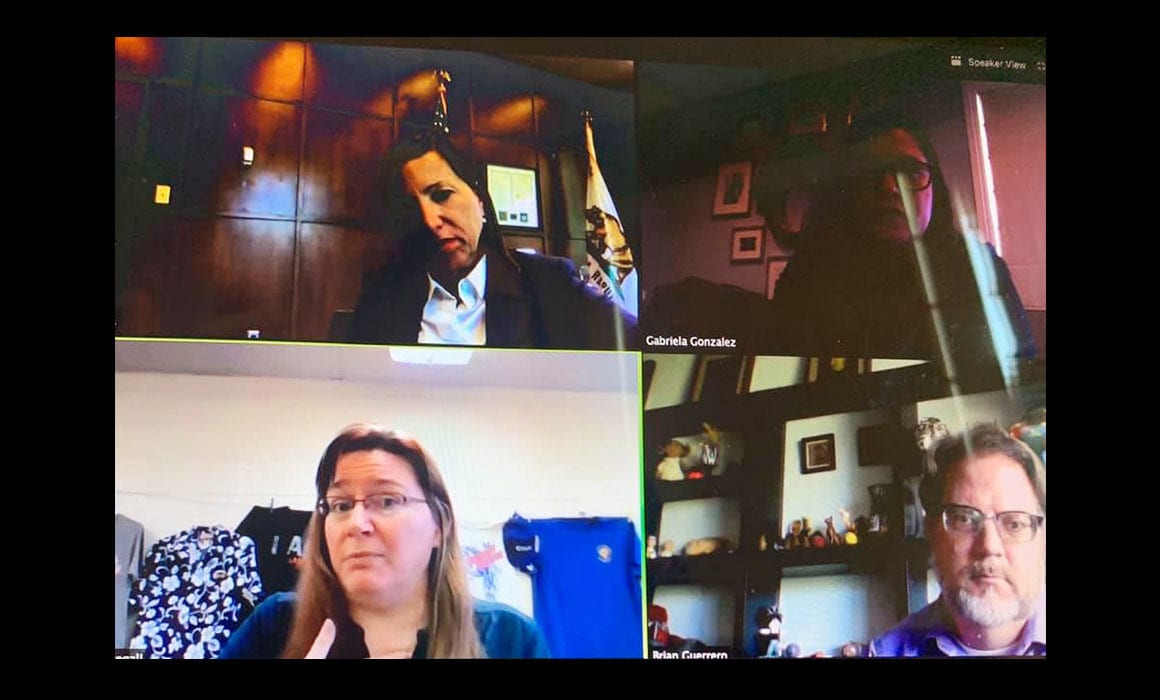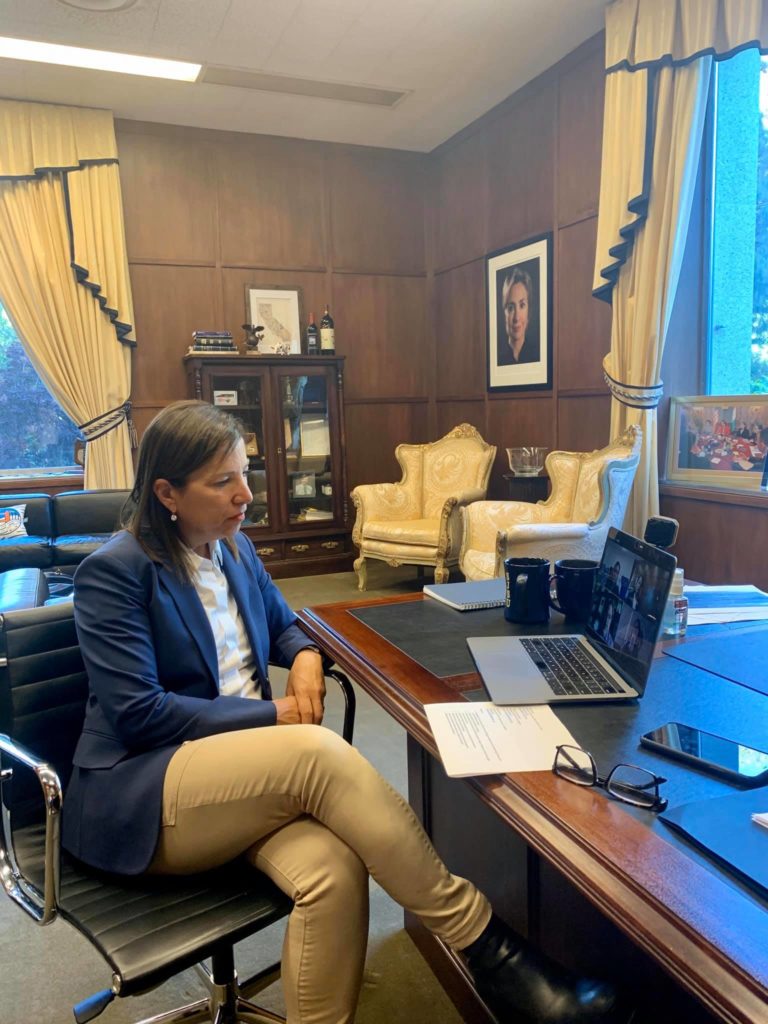
California Lt. Gov. Eleni Kounalakis spent time with three CTA educators on a videoconference this week to learn more about the challenges they’re facing during the age of COVID-19 and what resources are needed to help teachers support all students.
Kounalakis met Tuesday with Brian Guerrero, Lennox Teachers Association vice president; Gabriella Orozco Gonzalez, a member of Montebello Teachers Association; and Angela Stegall, president of Marysville Unified Teachers Association (MUTA).

“Earlier this week, I had the opportunity to check in with teachers from across the state on a Zoom call to hear about some of the challenges they’re facing,” Kounalakis posted on her Facebook page. “From distance learning to additional training, our teachers are taking on so much. We owe an incredible amount of gratitude for all they are doing to make this ‘new normal’ work for our students!”
Orozco Gonzalez says she appreciated the opportunity to share with the lieutenant governor her experiences transitioning from the classroom to a virtual platform. She says her lessons in Google Classroom and during virtual videoconferences build on the foundational skills her students mastered during the year, while she also allots time for them to express themselves through journaling, structured conversations, encouragement and daily check-ins. Orozco Gonzalez also stressed the importance of supporting students’ social and emotional needs.
“The main focus is now connecting with children and making them feel safe. It’s important to validate their feelings. They miss their friends and the safety of school,” she says. “Eleni was very interested in my perspective about focusing on social emotional learning (SEL) and providing opportunities for the students to feel they are still part of a classroom, where we are together, we are connected and their teacher is still invested in them.”
Stegall highlighted equity issues that are impacting students throughout California, where lack of technology and Internet access are keeping many students from the education they deserve. This is in addition to the ongoing impacts of school closures and being separated from their friends.
To address these impacts and be sure their students will be held harmless from impacts of the COVID pandemic, MUTA negotiated an agreement with the school district that the grades their students had on March 13—the last day of in-person classes—would be the lowest their grades could be at the end of distance learning. Stegall says the passion for the issue by her fellow MUTA members was “unlike anything I’ve ever experienced at the bargaining table.”
“We were adamant that we were going to hold our students harmless—they are blameless and this in no way is their fault or their doing. They are already experiencing so much uncertainty, upheaval and emotional turmoil; they do not need academic pressures or penalties added,” Stegall says. “We let our district know this ‘hold harmless’ aspect of our proposal was non-negotiable and now we’re having to be very attentive to protecting this approved language and concept. The lieutenant governor acknowledged the critical importance of holding our students harmless through this crisis.”
Kounalakis was especially interested in supporting students who are losing important moments in their lives, like high school dances and graduations. This has particular significance for the lieutenant governor, as one of her sons is currently a high school senior.
“She was extremely sympathetic, empathetic, and compassionate—as my students say, she ‘got it.’” Stegall says. “We spoke a great deal about our concerns for our students, and in the process, we also sang their praises for the resilient, amazing people they are.”
Guerrero says that Kounalakis was very complimentary and appreciative of all that educators are doing under extraordinary circumstances. He said all agreed that while academics and normalcy are important, so are students’ happiness, health and well-being.
“Jumping into heavy-duty, high-stress assignments just to get students producing isn’t as important as re-establishing our classroom communities and maintaining relationships with students,” Guerrero says. “She seemed to agree and be supportive of those priorities and then talked about some things she and Newsom were working on to support kids and families.”
And just how are educators hanging in there, Kounalakis asked. Orozco Gonzalez responded that it’s been abrupt and rough, but educators are stepping up to support students like always.
“Every teacher who loves teaching will tell you that the best part of the school year is March through June. By then, we have become a family, a tribe, and all the routines and norms have been established,” she says. “We are cruising into summer, packed with knowledge and driven by the growth we have experienced as a group. These are the golden months of a teacher. I mourn them as we were abruptly halted by the pandemic. I cling to my students as they to me, and for this I appreciate the luxury of having technology to keep us connected.”
The Discussion 0 comments Post a Comment